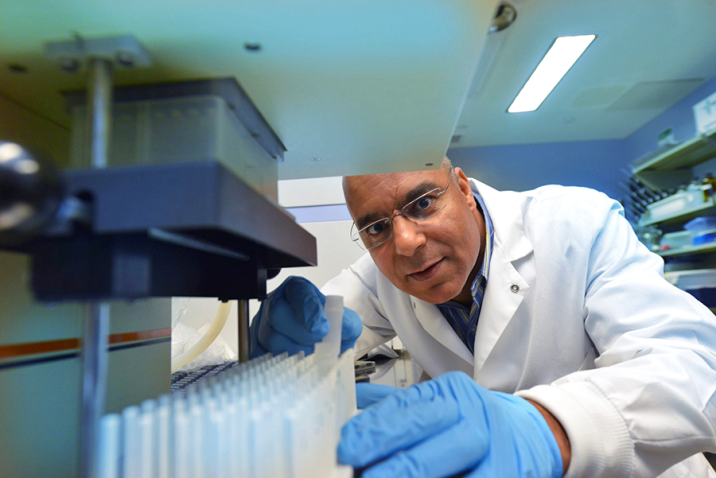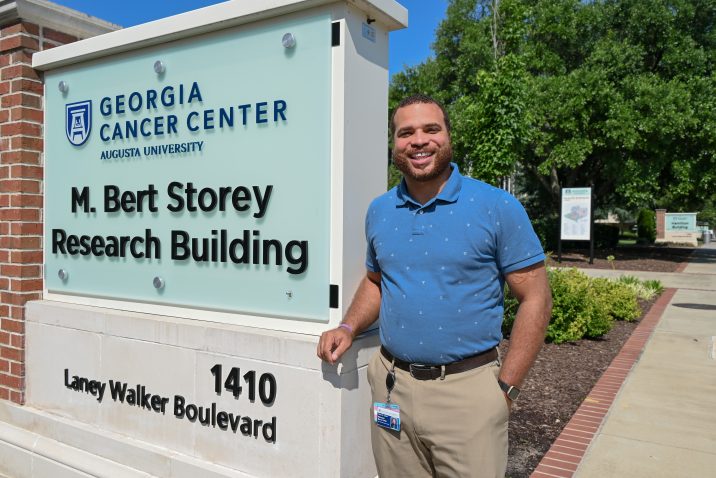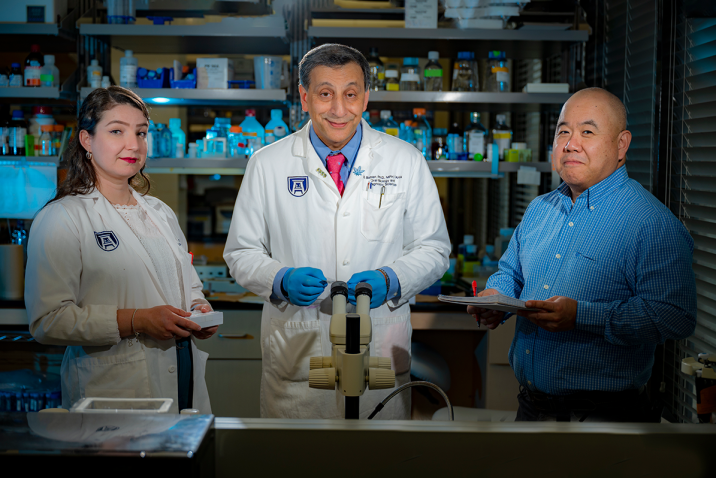Molecular Oncology & Biomarkers
The overall goals of the Molecular Oncology & Biomarkers program are to understand
the fundamental cellular and molecular processes that contribute to cancer development
and progression.
Normal cells have intricate molecular mechanisms that control essential phenotypes
such as differentiation, cell division and movement. The molecular pathways that control
these phenotypes are disrupted in cancer cells as a result of the expression of oncogenes
and loss of regulatory tumor suppressor genes. These events, which are often highly
specific to individual types of cancer, disrupt specific molecular pathways that result
in uncontrolled cell growth and loss of normal responses to extracellular signaling
cues that result in tumor development and progression.
The research interests of the program can be divided into three broad themes:
- Cancer Genetics
- Epigenetics
- Chaperone Biology
Collectively these themes address important topics of tumor cell and molecular biology
including
- The genetic basis of cancer development and progression through the roles of specific
genes and pathways
- The genetic basis of metastasis underlying the roles of metastasis suppressor genes,
metastasis promoting genes, and microRNAs involved in metastasis
- The role of transcription factors in promoting cancer progression
- Cancer genomics in primary human tumors and mouse models of cancer using gene expression
and Next Gen sequencing;
- Application of bioinformatics tools to study complex data sets;
- The role of oncogenes and glycoconjugates in cancer cell progression;
- Genome-wide analysis of epigenetic changes in cancer development as a tool to identify
biomarkers for prediction of progression and prognosis;
- Analysis of heat shock chaperones and other stress proteins in cancer development
and as targets for cancer therapies;
- The role of obesity and metabolic changes in the development of cancer.
Cancer Research News
The grant awarded for Chadli’s research focuses on a specific protein, UNC45A, that can be used as a promising novel immunotherapeutic target in treating triple-negative breast cancer (TNBC).
This summer, high school students participated in the Georgia Cancer Center's first Summer Research Experience Program.
It is a key to life, but not every person living in Augusta has the same access to healthy food as their neighbors across the region.
A study conducted by a team of researchers from the Dental College of Georgia at Augusta University tested inhalant CBD in the treatment of lung cancer and whether it could inhibit tumors from growing or spreading.




















